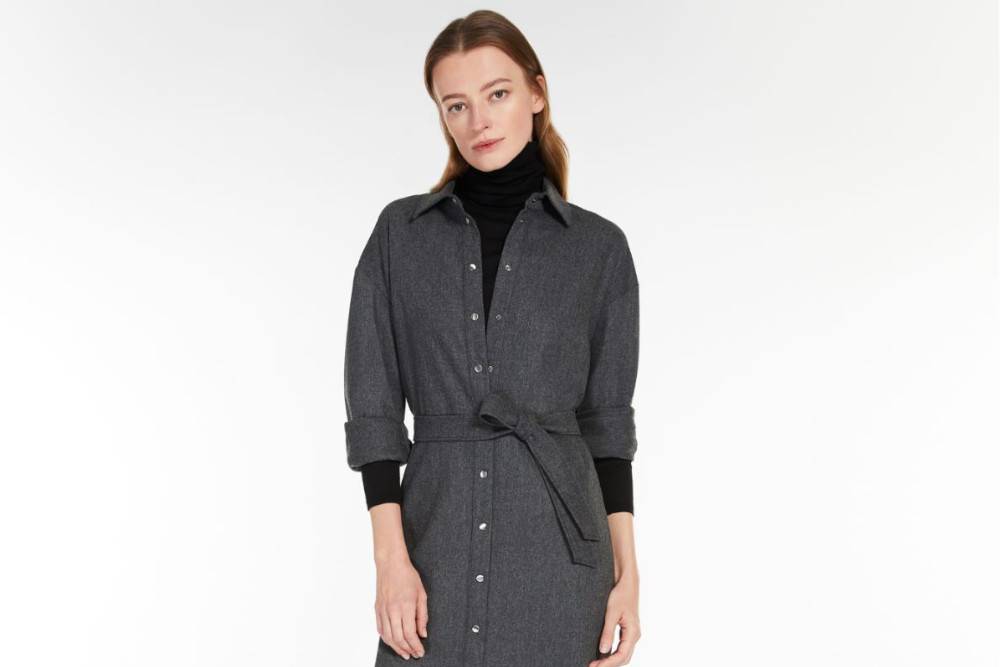
Max Mara is an Italian fashion retailer founded in 1951 in Reggio Emilia, Italy, by Achille Maramotti. The multinational clothing-retail company creates quality, luxury fashion for women.
Max Mara makes clothing, accessories, shoes, swimwear, eyewear, and jewelry. It owns other brands such as Marella, Pennyblack, iBlues, Sportmax, and Weekend and operates more than 2,200 stores across 90 countries.
Max Mara offers more sustainable collections made locally in Italy from recycled materials. It helps you pursue a sustainable lifestyle with more eco-friendly clothing options than those offered by the fast fashion industry.
Panaprium is independent and reader supported. If you buy something through our link, we may earn a commission. If you can, please support us on a monthly basis. It takes less than a minute to set up, and you will be making a big impact every single month. Thank you!
Sustainability Rating: 2/10
Rating FAQ
Category: Clothing, accessories, shoes, bags, jewelry
For: Women, men, children
Type: Basics, denim, knitwear, loungewear, outerwear, boots, flats, sneakers
Style: Chic, classic, formal
Quality: High
Prices: $$$
Sizes: 2XS-2XL, 0-14 (US), 2-16 (UK), 32-44 (EU), 4-18 (AU)
Fabrics: Cotton, linen, ramie, lyocell, modal, viscose, cupro, acetate, polyester, nylon, spandex, polyethylene, polypropylene, acrylic, neoprene, polyurethane, rubber, leather, wool, silk, down
100% Organic: No
100% Vegan: No
Ethical & Fair: No
Recycling: Yes
Producing countries: not transparent enough
Certifications: no certification
Sustainability Practices
Max Mara doesn't use any organic materials, such as organic cotton. It makes some products with recycled fabrics such as recycled polyester and regenerated nylon.
Most of the fabrics it uses are either natural without relevant certifications, such as regular cotton or linen, or synthetic petroleum-based fibers such as polyester, nylon, acrylic, and more.
Max Mara also uses a small proportion of semi-synthetic fibers or regenerated cellulosic fabrics such as lyocell, modal, acetate, and viscose.
Max Mara doesn't publish a list of all its manufacturers and processing facilities on its corporate website. It doesn't disclose how it chooses its network of suppliers.
The 2022 Fashion Transparency Index gave Max Mara the absolute lowest score of 0% based on how much the group discloses about its social and environmental policies, practices, and impacts.
The Italian clothing retailer doesn't show any labor certification standard that would ensure good working conditions, decent living wages, health, safety, and other crucial rights for workers in its supply chain.
Max Mara doesn't have a code of conduct that would apply to all its suppliers and subcontractors based on the regulations set by the International Labor Organization (ILO).
Max Mara use animal skin, hair, fur, and angora. It also uses leather, wool, silk, and down feathers to manufacture many of its clothing pieces.
These animal-derived materials are cruel and unethical. They also harm the environment by producing greenhouse gases and waste. More sustainable alternatives exist.
Sustainability Goals
Max Mara doesn't measure its water usage, pollution, greenhouse gas emissions, and waste across the supply chain. It doesn't have any sustainability goals, science-based targets, or timelines to improve in the future.
Reviews And Experiences With Max Mara
Have you had (good) experiences with shopping at or the products of Max Mara? Then leave us your rating below.
What We're Up Against
Multinational corporations overproducing cheap products in the poorest countries.
Huge factories with sweatshop-like conditions underpaying workers.
Media conglomerates promoting unethical, unsustainable products.
Bad actors encouraging overconsumption through oblivious behavior.
- - - -
Thankfully, we've got our supporters, including you.
Panaprium is funded by readers like you who want to join us in our mission to make the world entirely sustainable.
If you can, please support us on a monthly basis. It takes less than a minute to set up, and you will be making a big impact every single month. Thank you.






























0 comments